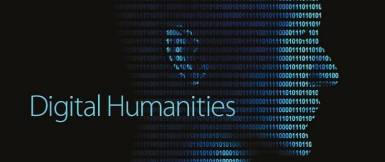Everything you ever wanted to know about Digital Humanities
 Posted date: 13 Aug 2021
Posted date: 13 Aug 2021
Digital humanities commonly referred to as "humanities computing," employs digital tools to dive further into humanities subjects such as history, literature, and the arts. It's an interdisciplinary field that's ideal for those with a background in the humanities and arts, as well as those with an interest in computing and information technology. Graduates will be able to explore humanities issues in a new light as a result. It could be especially handy if you wish to apply for research positions or other data-driven positions.
In one multidisciplinary course, a Digital Humanities degree integrates components of humanities and computing. While some colleges offer Digital Humanities bachelor's degrees, they aren't commonly available in Europe, and even fewer are taught in English.
Digital Humanities is usually taught as a Master's degree after a Bachelor's degree in a related field. Digital Humanities Masters programmes are often open to those with a Bachelor's degree in an arts or humanities discipline, as well as those with a Bachelor's degree in computer science or allied fields.
Although still uncommon, 100% online or mixed delivery is becoming more popular, which makes sense considering the subject's focus on the use of digital tools. Of course, each Digital Humanities programme is unique, although several common courses will almost certainly be taught. These are the most common:
* Coding for humanities: You'll master the fundamentals of programming using Python, a user-friendly yet sophisticated programming language, and/or R, a statistical programming language.
* Collecting and analyzing data: Many areas of Digital Humanities necessitate a basic understanding of data and statistics, which is normally addressed in at least one semester.
* Introduction to humanities: A course usually incorporates the fundamentals of several humanities courses, especially for people with a technology education.
* An individual work placement: A work placement is available in some courses. This could happen at a museum, library, gallery, or publishing house, among other places.
* An individual dissertation: An independent piece of study on a topic of your choice, usually between 10,000 and 12,000 words in length, conducted out under the supervision of a supervisor.
You should be able to select appropriate optional courses based on your personal background. The goal of digital humanities as a new and growing field is to open up new avenues for research in various fields and to investigate traditional problems in new ways. For students, this could mean applying computer skills to better evaluate and comprehend humanities data, or looking at culture, language, or history via a digital lens.
Posted By

GSP Admin




